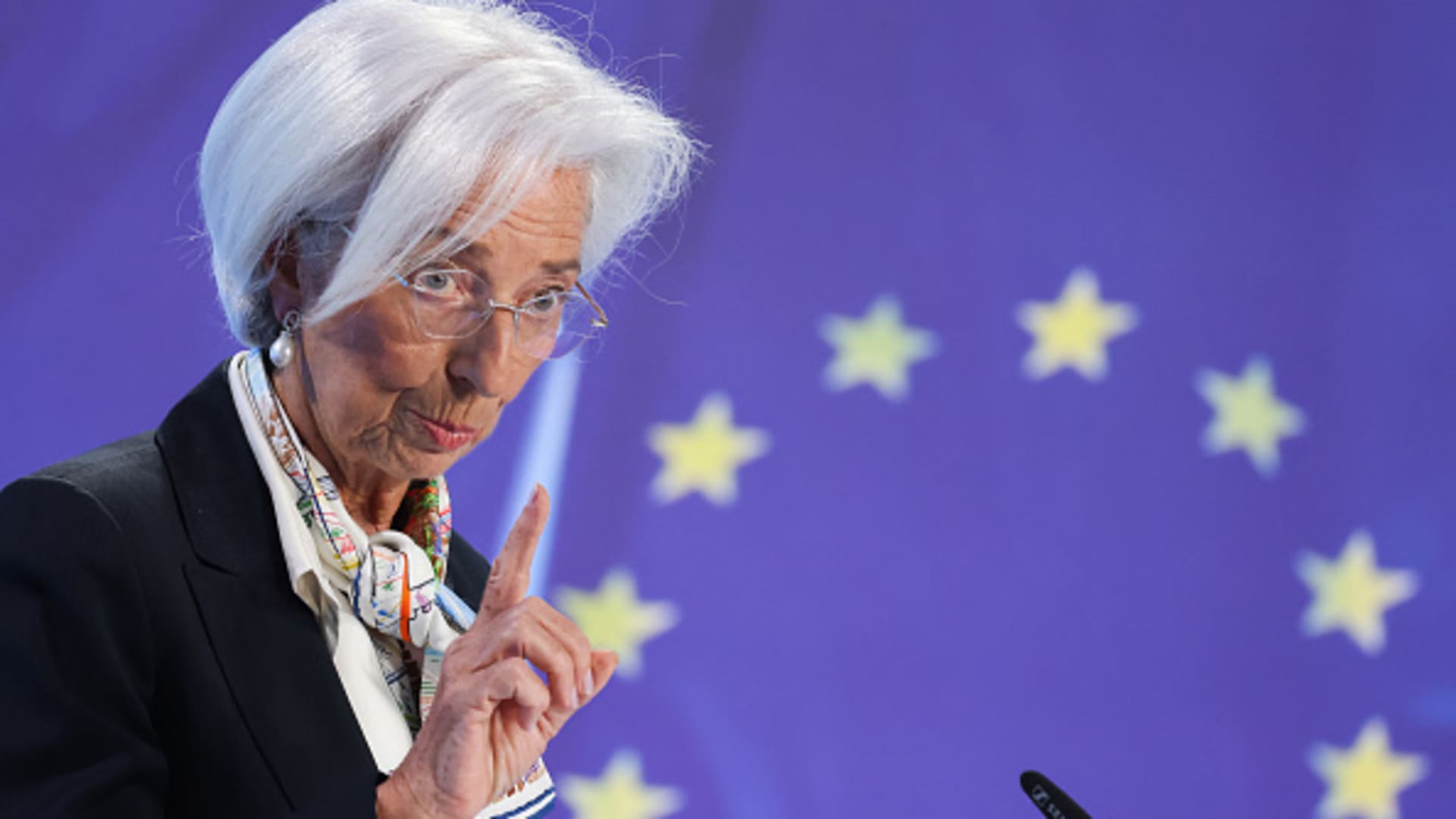The European Central Bank on Thursday held interest rates steady for a fifth straight meeting and gave its clearest signal yet of an upcoming rate cut, despite uncertainty over the U.S. Federal Reserve’s next moves.
“If the Governing Council’s updated assessment of the inflation outlook, the dynamics of underlying inflation and the strength of monetary policy transmission were to further increase its confidence that inflation is converging to the target in a sustained manner, it would be appropriate to reduce the current level of monetary policy restriction,” it said in a statement.
In a news conference after the announcement, ECB President Christine Lagarde said this “important” new sentence was a “loud and clear indication” of the bank’s current sentiment.
The ECB made no direct reference to loosening monetary policy in its previous communiques.
The central bank for the 20 countries that share the euro currency hiked its key rate to a record 4% in September. It has left this rate unchanged at every gathering since.
Policymakers and economists have zeroed in on June as the month when rates could start to be reduced, after the ECB trimmed its medium-term inflation forecast. Price rises in the euro zone have since cooled more than expected in March.
June will also be the first month when policymakers will have a full set of data on first-quarter wage negotiations — an area of concern for potential inflationary effects.
The ECB on Thursday said incoming information had “broadly confirmed” its medium-term outlook, with falling inflation led by lower food and goods.
Market pricing suggests a 25 basis point cut in June, according to LSEG data.
“For a while now, the ECB has essentially pre-committed to a June cut. There is a high bar for this not to be delivered. But there is a wide range of possible outcomes in the subsequent months, depending on further progress with disinflation. So far, the data is moving in the doves’ favour,” said Hussain Mehdi, director of investment strategy at HSBC Asset Management, in a note.
Next Fed steps
In the U.S., expectations for a summer rate cut from the Federal Reserve were significantly curtailed by inflation data coming in higher than forecast on Wednesday.
This has raised questions over how European central banks will respond to developments in the world’s largest economy.
Asked Thursday about whether the U.S. consumer price index figures could impact the ECB’s rate-cut trajectory, Lagarde said: “Obviously, anything that happens matters to us and will in due course be embedded in the projection that will be prepared and released in June. The United States is a very large market, a very sizeable economy, a major financial sector as well.”
“We are not assuming that what happens in the euro area will be the mirror of what happens in the United States,” Lagarde said, stressing that the economies, political regimes and fiscal policies were all different.
She declined to specify whether the euro’s exchange rate against the U.S. dollar would factor into policymaking.
But in comments reported by Reuters that preceded the ECB’s decision, Per Jansson, deputy governor at Sweden’s central bank, on Thursday said that if the Fed rules out rate cuts in 2024, it could present a “problem” for both the Riksbank and the ECB.
In the case of the Riksbank, this would be due to the weakening of the Swedish krona fueling inflation, Jansson said in a speech.
European data continues to move toward the 2% inflation target, keeping the ECB on track for a June cut – but the pace and extent of further reductions this year “could be more sensitive to U.S. data and Fed policy,” Andrew Benito, chief European economist at Eisler Capital, told CNBC’s Silvia Amaro ahead of the rate announcement.
